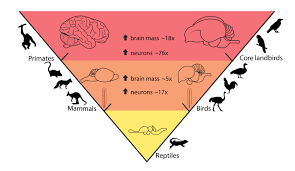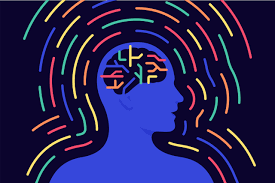The human brain is an extraordinary organ, both in its complexity and its capacity. As the control center of the body, it orchestrates everything from basic survival functions to advanced cognitive processes. Despite its small size relative to the rest of the body, the brain’s power and intricacy are nothing short of astounding. This article delves into some mind-blowing health facts about the human brain that highlight its remarkable abilities and its critical role in our daily lives.
1. The Brain’s Complexity and Capacity

1.1. Neurons and Synapses
The human brain contains approximately 86 billion neurons, each capable of forming thousands of connections known as synapses. This vast network allows for the brain’s incredible complexity and its ability to process and transmit information.
- Neurons: Neurons are specialized cells that transmit information through electrical and chemical signals. They are fundamental to brain function, enabling everything from movement to thought.
- Synaptic Connections: The brain’s synapses form an intricate web of communication pathways. It is estimated that the brain’s synaptic network comprises more than 100 trillion connections, illustrating its immense computational power.
1.2. Brain Plasticity
The brain’s ability to adapt and reorganize itself, known as neuroplasticity, is a critical aspect of its function. Neuroplasticity enables the brain to adjust to new experiences, learn new skills, and recover from injuries.
- Learning and Memory: Neuroplasticity underlies the brain’s capacity to learn and remember. Through experiences and practice, the brain can create and strengthen neural pathways, enhancing cognitive abilities.
- Recovery: Neuroplasticity also plays a role in recovery from brain injuries or strokes. The brain can sometimes reassign functions to different areas, helping individuals regain lost abilities.
2. The Brain’s Energy Consumption
2.1. High Energy Demands
Despite representing only about 2% of the body’s total weight, the brain consumes roughly 20% of the body’s energy. This high energy demand is essential for maintaining its complex functions and activities.
- Metabolic Activity: The brain’s energy consumption is primarily used to support the activity of neurons, including the transmission of electrical signals and the maintenance of ion gradients across cell membranes.
- Glucose Utilization: The brain relies heavily on glucose as its primary source of energy. Adequate glucose levels are crucial for optimal brain function and cognitive performance.
2.2. Oxygen Consumption
The brain is also highly dependent on oxygen. It receives about 15% of the body’s total blood flow, ensuring a continuous supply of oxygen necessary for its metabolic processes.
- Oxygen Utilization: Oxygen is essential for the brain’s aerobic metabolism, which produces ATP (adenosine triphosphate) – the energy currency of the cell. A disruption in oxygen supply can lead to cognitive impairment and damage.
3. Cognitive Abilities and Limitations

3.1. The Power of the Brain’s Processing Speed
The human brain’s processing speed is remarkable. Neurons can transmit information at speeds ranging from 1 to 120 meters per second, allowing for rapid communication within the brain.
- Reflexes and Reactions: This fast processing speed underpins quick reflexes and decision-making. For example, the brain’s ability to process sensory information and generate a response is crucial for everyday activities and survival.
3.2. Cognitive Load and Limitations
While the brain is incredibly powerful, it does have limitations. Cognitive load refers to the amount of mental effort required to perform a task. Overloading the brain can lead to decreased performance and mental fatigue.
- Attention Span: The brain’s capacity to focus on multiple tasks simultaneously is limited. Multitasking can lead to reduced efficiency and errors, as the brain rapidly switches attention between tasks rather than performing them concurrently.
- Memory Constraints: Short-term memory has a limited capacity, often referred to as the “seven plus or minus two” rule. This means that people can typically hold onto 5 to 9 pieces of information in their short-term memory at one time.
4. The Brain’s Role in Emotions and Behavior
4.1. Emotional Processing
The brain’s limbic system, which includes structures like the amygdala and hippocampus, plays a crucial role in processing emotions and forming memories.
- Amygdala: The amygdala is involved in the recognition and response to emotional stimuli, such as fear and pleasure. It helps shape emotional experiences and reactions.
- Hippocampus: The hippocampus is essential for forming new memories and connecting them to emotions. It plays a role in spatial navigation and contextual memory.
4.2. Behavioral Regulation
The prefrontal cortex, located at the front of the brain, is responsible for executive functions, including decision-making, impulse control, and social behavior.
- Decision-Making: The prefrontal cortex helps evaluate options, plan actions, and foresee consequences. It is involved in complex decision-making processes and problem-solving.
- Impulse Control: This region also regulates impulsive behavior and helps individuals make considered choices rather than acting on immediate urges.
5. Sleep and the Brain
5.1. The Importance of Sleep
Sleep is crucial for maintaining brain health and function. During sleep, the brain undergoes various processes that are vital for cognitive performance and overall well-being.
- Memory Consolidation: Sleep plays a key role in consolidating memories and integrating new information. It helps transfer information from short-term to long-term memory.
- Detoxification: The brain’s glymphatic system is more active during sleep, helping to clear out metabolic waste products that accumulate during waking hours.
5.2. Sleep Disorders and Impact
Disruptions in sleep can have significant effects on brain function and health. Common sleep disorders, such as insomnia and sleep apnea, can impair cognitive performance and emotional regulation.
- Cognitive Effects: Poor sleep quality is associated with decreased attention, memory problems, and reduced problem-solving abilities. Chronic sleep deprivation can also increase the risk of neurodegenerative diseases.
- Emotional Impact: Sleep disorders can lead to mood disturbances, including increased stress and anxiety. Ensuring adequate and quality sleep is essential for emotional balance and mental health.
6. The Brain-Body Connection

6.1. Neuroendocrine Interactions
The brain communicates with other body systems through the neuroendocrine system, which involves the release of hormones that regulate various physiological processes.
- Hormonal Regulation: The brain’s hypothalamus controls the release of hormones from the pituitary gland, influencing growth, metabolism, stress response, and reproductive functions.
- Stress Response: The brain’s response to stress involves the release of stress hormones, such as cortisol, which can impact various bodily functions and health outcomes.
6.2. Gut-Brain Axis
The gut-brain axis refers to the bidirectional communication between the gut and the brain. This connection highlights the influence of gut health on mental and cognitive function.
- Microbiome Impact: The gut microbiome, composed of trillions of microorganisms, can affect brain function and behavior. Imbalances in gut bacteria have been linked to mood disorders, such as depression and anxiety.
- Diet and Cognitive Health: A healthy diet that supports gut microbiome balance can positively impact brain health and cognitive performance.
Conclusion
The human brain is an extraordinary organ with remarkable abilities and complex functions. From its intricate network of neurons to its crucial role in regulating emotions, cognition, and overall health, the brain’s significance cannot be overstated. Understanding these mind-blowing facts about the brain helps us appreciate its incredible capabilities and the importance of maintaining brain health. By supporting brain function through a balanced lifestyle, proper sleep, and mental stimulation, we can harness the full potential of this amazing organ.

